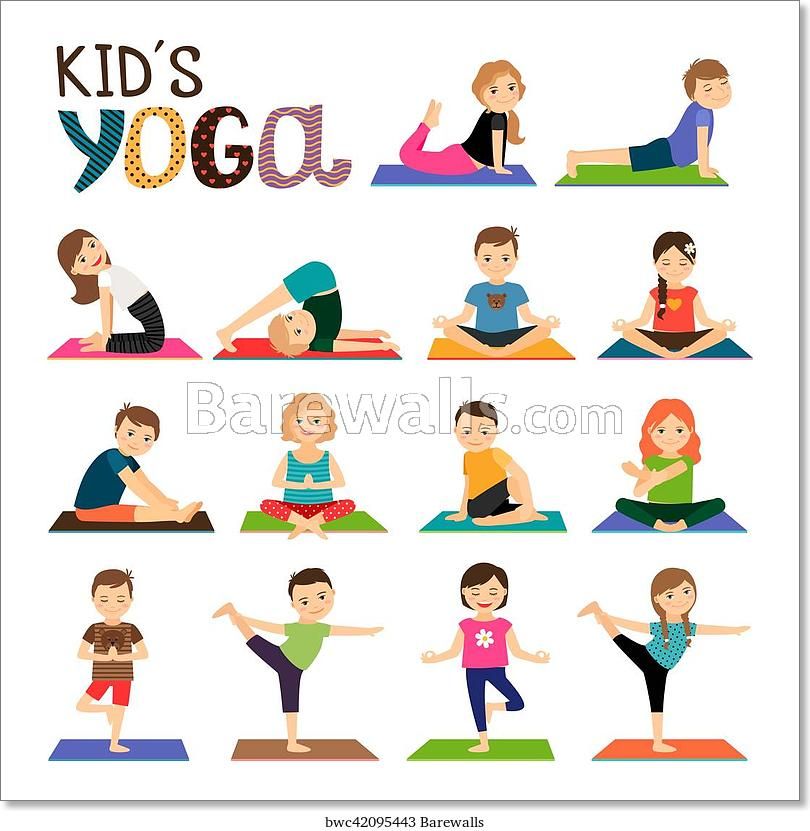
There are many benefits to yoga, and it is not just for athletes. Yoga can also be helpful for those with chronic illnesses like diabetes, high blood pressure, or high cholesterol. Yoga poses can be beneficial for cardiovascular health. They also increase circulation and reduce stress. Find out more about yoga's connection to your heart health and the specific benefits it offers. These are just a few benefits that yoga can bring to your heart. You can learn more about yoga and how it can help you keep healthy and prevent heart disease.
Pranayama (a series of exercises that allow for immediate relaxation) is one of Yoga's most important components. Some of these include Anulom-Vilom, which cleanses the nerves in the body, and Alternate Nostril Breathing. Yoga for the heart must be done properly under the guidance of a Yoga specialist. You must also ensure that you eat healthy.
Yoga's ability to reduce stress is another key benefit. While many believe yoga can prevent or reverse heart disease and other benefits, others argue it doesn't. No matter how you choose to do yoga, whether you're doing traditional or modern forms, it's important to follow the prescribed sequence. The British Heart Foundation recommends that individuals attempt at least five yoga poses each day. Relaxing the mind and body is the best way to find the best yoga postures.

Yoga has a second benefit: it improves your cardiovascular health. It improves cardiovascular health by reducing inflammation and improving circulation. This is why it is so important to exercise regularly. As long as you can do a few minutes a day, the benefits will become apparent. You don't need to be discouraged if exercise is not something you do every day. It's essential to a healthy heart.
Yoga is known to increase LVEF, lipids, as well as hyperglycemia. It also reduces the risk of developing high blood pressure or atrial fibrillation. Yoga is an excellent way to improve your heart health. It is possible for you to improve your heart health through yoga. Be aware of the risks involved in this exercise.
You will be able lower your stress levels by practicing yoga. Having lower levels of stress can improve your cardiovascular health, so it's vital to reduce it. Even though yoga is an excellent way to relax, and to reduce stress, you should still be consistent in your exercise routine and follow a qualified instructor. You'll be more likely keep a regular practice. Even if you only do it for a few minutes each morning, it will make an impact on your heart health.
Yoga can not only improve your overall health, but it can also help with your cardiovascular disease. Yoga reduces your blood pressure. It also improves your heart endurance and efficiency. It can lower your blood pressure. To avoid heart disease, you should practice yoga. It will improve your overall well-being. You will reap the rewards! Don't delay in starting to practice yoga. You'll be amazed at how quickly you can benefit from yoga.

The American Heart Association recommends 30 minutes of moderate-to-vigorous physical activity five days per week. Yoga will help improve your cardiovascular health. Moreover, you'll also be more relaxed, which will reduce stress. It can also lower blood pressure. Yoga can make you feel more energetic. This is one reason to have a healthy mind and body. Yoga will relax you and help you live a healthier, longer life.
Yoga can also help with stress management, insomnia, and depression. It can help with anxiety and depression. An 2004 study showed that regular yoga sessions could reduce mild depression symptoms. A study found that yoga practice resulted in improved mood and lower fatigue among participants. It also showed a reduction in stress hormones which was a huge benefit to the study. Although yoga's benefits are obvious, there are other aspects to your life that can benefit from it.
FAQ
Can I consume alcohol while working out?
Yes. Alcohol can increase energy expenditure and speed up recovery, as well as reduce soreness.
Also, alcohol increases insulin sensitivity which makes it easier to absorb glucose.
Alcohol can cause dehydration. This can slow down your metabolism. Alcohol can also lower testosterone production, which could lead to a decrease in muscle-building potential.
This is why women shouldn't have alcoholic drinks before exercising. Women who drink heavily should wait at least 24 hours between drinking and working out.
Breastfeeding women should stay away from alcohol.
Men should have no more than one drink per day.
Can I go to a gym 7 days per week?
You can go to the gym seven times a week, but not at once. This means you need to choose a time when you feel rested and not too tired.
This will keep you motivated and provide energy for other activities.
It is important to eat right during these times. This will make it so you don't feel tired or sluggish while going to the gym.
Last, you must make sure that there isn’t another thing competing for your attention. For example, if you have children, you may want to avoid exercising on school nights as they will distract you from your workout.
How quickly can I transform the body of my child?
Change your mindset is the first step. It is important to first make the decision to change.
After you have made the decision to change, you should commit to working towards your fitness goals for at minimum 3 months.
Then you need to find a program that fits into your lifestyle.
Also, you need to set realistic goals. Don't spend your hard earned money on a gym membership if you don't have the motivation to work hard.
Instead, exercise outdoors in your own time.
Walking around the block for an hour per day will help you lose 1 lb in a week.
Now that you are clear about what you want to do, plan how you will organise your life around this plan.
This includes making sure that you schedule a time to work out every morning before leaving for work and take breaks throughout the day to move.
You should also reward yourself for reaching milestones. This could include buying clothes or accessories that reflect your success.
Do Men Need A Gym Membership?
A gym membership is not necessary for men. But, if you do join a gym, it will make your money go further.
Many gyms offer free trial memberships that allow you to test the facilities before signing up for any monthly fees.
The gym is open to all, and you don't have to pay anything. You can cancel your membership as soon as you decide whether you love or hate it.
What is the best 7-day workout program?
A seven day exercise program should include cardiovascular training (running or biking), strength exercises (using freeweights, weight machines) and one flexibility/core workout. Each activity must be completed at least once per week. Each session should not last more than 45 minutes.
Cardiovascular Exercise: Running/Biking/Swimming
You should aim to get at least 60 mins of cardio exercise per week. Aim for 75 minutes per week to get the best results. Cardio exercises can help improve blood flow and stimulate muscle growth.
Strength Training
Cardio exercises target the heart, lungs and muscles. Strength training targets the muscles, tendons and bones. Strength training is a great way to build lean muscle mass that helps you burn calories even if you are not actively exercising.
Flexibility and Core Workouts
You can strengthen your entire body by strengthening flexibility and core exercises. Both yoga and Pilates can be great choices.
Is weightlifting more effective at burning fat?
Although weight lifting can help you lose fat more quickly, it is best to combine it with cardio exercises.
It is important to do weightlifting right after cardio exercise in order to reap the full benefits.
When done correctly, weightlifting increases your heart rate and oxygen consumption which helps you lose weight.
It is important to combine cardio with it, as you will not see significant changes in your body's composition.
Statistics
- According to the American Heart Association, blood pressure should be checked at least once every two years, beginning at age 20. (my.clevelandclinic.org)
- An estimated calorie range for moderately active adult males falls between 2,200 to 2,800 calories per day, depending on age. (eatright.org)
- According to the American Academy of Dermatology (AAD), men over 50 are at a heightened risk of developing it. (healthline.com)
- 10 pounds in a month is likely during a lean bulking phase, especially for beginners. (muscleandstrength.com)
- Cardmembers earn 5% Back at Amazon.com with a Prime Credit Card. (amazon.com)
External Links
How To
What nutrients does a man require daily?
Men need healthy growth and development. The body requires vitamins, minerals, proteins, carbohydrates, fats, water, fiber, and other essential elements.
The male body also requires specific nutrients at different times throughout the day. To give you an example, the body uses energy it receives from food to make hormones and antibodies. When you wake up, your body uses protein to repair damaged tissue and build muscles.
At night, your body breaks down fat and stores the extra energy as glycogen. During this time, your body needs fewer calories but still needs sufficient nutrients. You can have a snack at night if you feel hungry.
For your body to function properly, it needs adequate amounts of protein and carbs. If you exercise hard, you might feel muscle soreness.
To prevent this, you must consume carbs and protein within 2 hours of training. Your body will use stored glycogen to produce glucose for energy.
Also, protein must be consumed immediately after your workouts. This prevents muscle tissue being destroyed while you're sleeping.
Your body can produce lactic acid during intense physical activity. It is a form of lactic acid that builds up in the bloodstream. This causes fatigue. This can be avoided by eating foods high in carbohydrates like fruits and vegetables.
Carbohydrates can give your body the energy it requires to recover from intense exercise.
A healthy diet should include lean meats such as fish, eggs and milk, cheese, yogurts, beans, seeds, nuts, and beans.
All of these foods contain high-quality protein. Protein promotes muscle growth, and helps repair damaged tissues. Protein is also necessary for the production of sex hormones such as testosterone.
A healthy skin, nails and joints requires sufficient dietary fats. Healthy men need between 20% - 35% of the total caloric intake to be fat.
Fat helps keep your heart strong and protects against cancer. It keeps your brain healthy and functioning well.
Vegetable oils, such as olive oil, sunflower oil or corn oil, soybean oil and peanut oil, can supply most of the fats you require.
These oils contain high levels of monounsaturated fat acids (MUFAs). MUFAs lower cholesterol and decrease inflammation. They protect your cells from damage by free radicals.
Saturated Fats (SFAs), which are mostly found in animal products like meat, butter, and dairy products, include LDL ("bad") cholesterol. SFAs are known to raise LDL ("bad") cholesterol and raise triglycerides. They promote weight gain and abdominal fat.
Polyunsaturated oil (PUFAs), which are plant-based, can be found in vegetable oils, nuts seeds, grains, and other plant-based products. PUFAs reduce inflammation and improve cardiovascular function. They also help control blood sugar and cholesterol.
Men with low HDL ("good") cholesterol often suffer from erectile dysfunction. The consumption of saturated fats raises bad cholesterol which in turn lowers good cholesterol.
Men who eat lots of red meat or pork can develop prostate problems. This is because these foods contain high amounts of nitrates. When heated, nitrates are converted to nitrosamines. These compounds cause cancer.
Most processed meats have nitrites and harmful chemicals. Avoid them.
The American Heart Association suggests that no more than two servings per week of red meat should be consumed. Instead, choose poultry or fish, beans, tofu and whole grain bread.